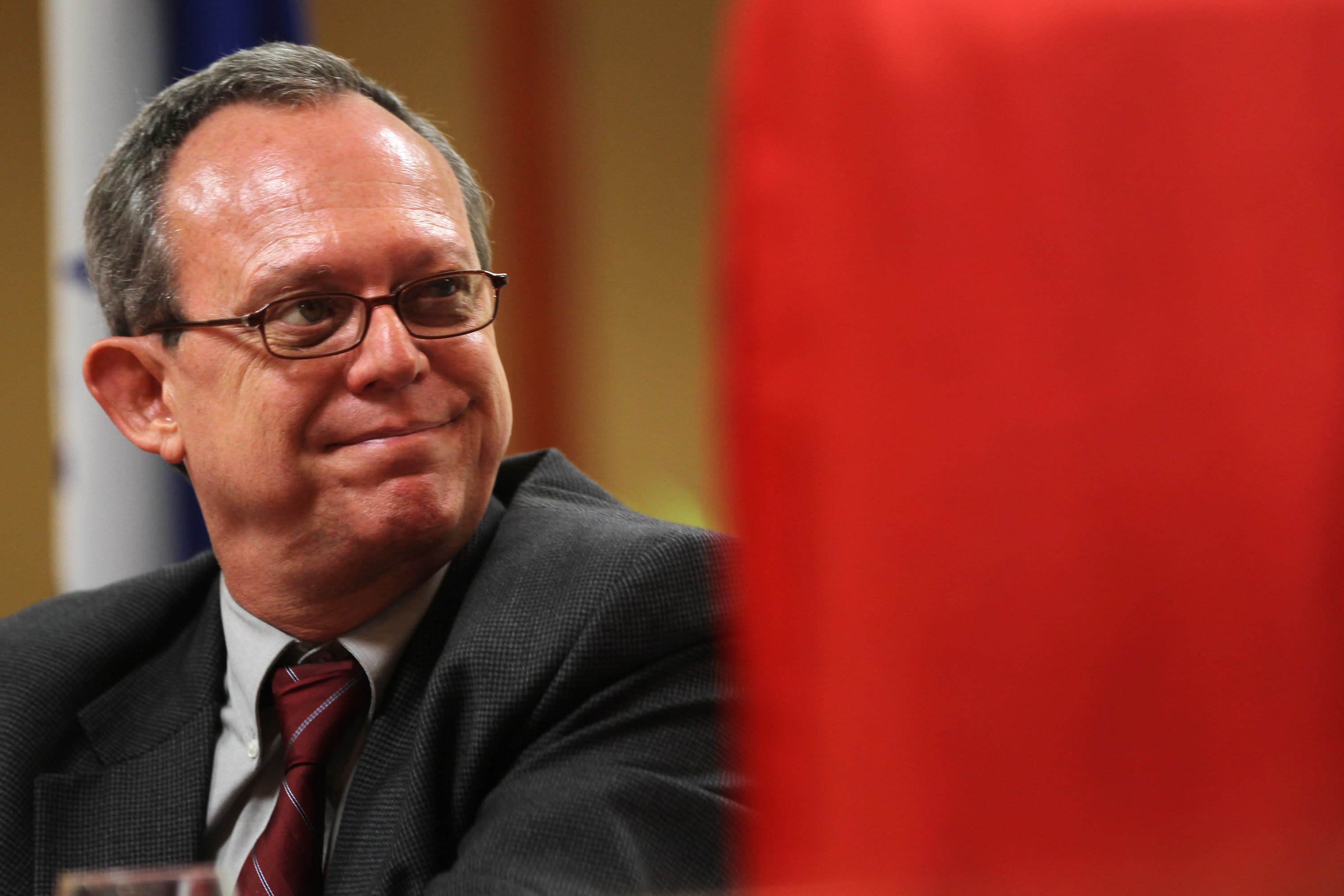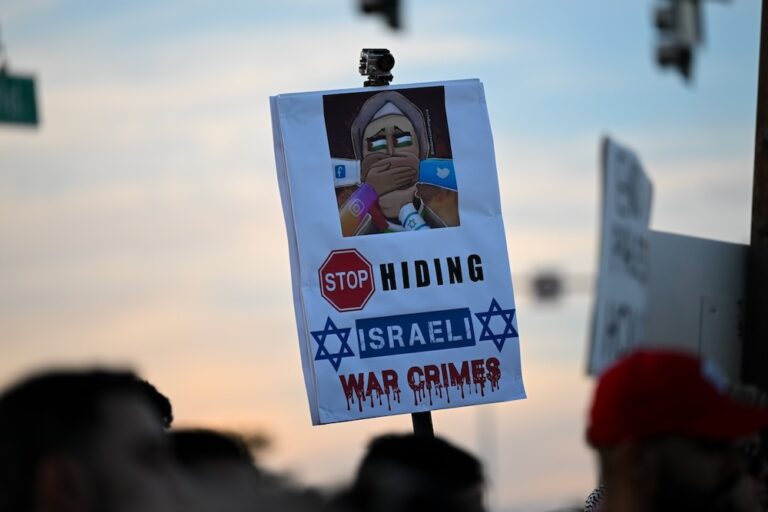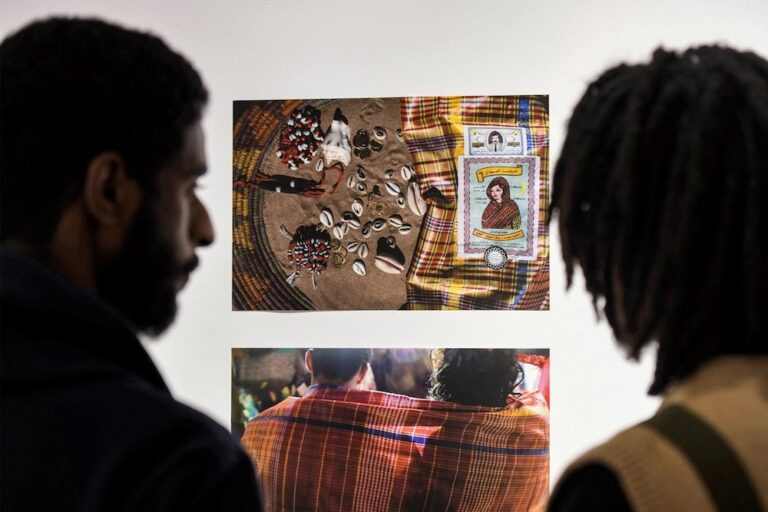In July 2014, Guatemalan human rights lawyer Frank La Rue's mandate as UN Special Rapporteur for freedom of expression came to an end. Silvia Chocarro Marcesse interviewed La Rue and his successor, American law professor David Kaye, for IFEX.
In July, Frank La Rue closed the books on his six-year term as the UN Special Rapporteur on the Promotion and Protection of the Right to Freedom of Opinion and Expression. As of November, he is the Director of the Robert F. Kennedy Center for Europe, based in Florence, Italy. His successor, David Kaye, is looking ahead to new challenges and making his own mark, but acknowledges that he stands on the foundations of his predecessor. Kaye spoke to IFEX from his office at the University of California-Irvine School of Law where he is the director of the International Justice Clinic. La Rue was interviewed in Bilbao, Spain, where he was attending a conference.
FRANK LA RUE
When you assumed the role of the Special Rapporteur, what surprised you the most?
I was highly surprised by two things. Naively, first, I thought the issue of freedom of expression would be backed by a tremendous consensus in the world because it is the foundation of any democracy and all human rights. However, I realized that I was wrong. It is a much more complex issue than I expected. At the same time, I was pleasantly surprised by the variety of issues the mandate allowed me to work on.
In that context, how do you remember the beginning of your mandate?
My first two years were very hard. They were defined by the debate on the concept of defamation of religions, promoted by the Islamic world. I could see there was discrimination toward Islam, but this is not an issue of freedom of expression. I always argued that defamation of religions does not exist as concept. They finally shared my views and we got a consensus but it took me two years of discussions. I think the fact that I am Guatemalan helped me because I was not seen as part of the Western world and I come from a multicultural and multiethnic country with a long history of discrimination.
What were your greatest achievements?
I would underline three. First, the diversity of issues that I could work on, such as violence against journalists, internet development, electoral communication, privacy and a child’s right to freedom of expression. Second, I established new categories of visits to countries, such as the technical visits and the regional consultations, breaking the four walls of the Palais de Nations (UN headquarters in Geneva).
And finally, my openness to the world and my determination of being in as many places as possible, always with a proactive attitude. This gave me an amazing result, it gave me credibility and strong links with local civil society and human rights defenders.
Is there something you would have liked to achieve but did not?
It is very painful for me not to have visited China, Indonesia and Sri Lanka. Formally, the invitation is up to them, but maybe I did not work hard enough for the invitation.
Are the challenges to freedom of expression now the same as when you took office in 2008?
Definitely not. They have changed. First, violence against journalists has increased. The other issue is the internet. There is greater internet coverage, but access to internet is still a challenge. For the impoverished, access must be guaranteed, if necessary, with subsidies. And net neutrality.
How healthy is freedom of expression today?
We are in a difficult stage. I think the world is always advancing, but it does so in waves and we are now in a period of recession, where freedom of expression is being curtailed.
What is the greatest enemy of freedom of expression?
Authoritarian governments, who want to stay in power imposing its will.
The first International Day to End Impunity on Crimes Against Journalists was celebrated last November, do you think these kinds of initiatives are useful?
It is always useful. We need to combine all possible efforts, but ending impunity requires a high level of political will and an effective judicial system.
How do you think IFEX can strengthen the Rapporteur?
We are living in the world of social networks and IFEX is the most important network in terms of freedom of expression. Their existence is invaluable and I have always trusted them.
What advice would you give the new Rapporteur David Kaye?
To maintain an ongoing dialogue with civil society.
DAVID KAYE
How did you envision the role of the Special Rapporteur on Freedom of Expression?
It has always been attractive to me, the fact that special rapporteurs have a certain kind of freedom to address some of the most important issues of the day, like freedom of expression, without the normal constraints that are attached to other UN, regional or governmental mechanisms.
When you were named, what did you want to do first?
My thinking was, first, to expand the work of my predecessor Frank La Rue, building on his foundation. I also have a very strong interest to speak beyond Geneva, to make my work accessible to people beyond lawyers, diplomatic and policy makers, reaching the people that are simply trying to express themselves and live their lives in freedom.
How do you expect to reach these people?
I want to have an open door policy. First, being responsive to people and ensuring that I respond to everyone that writes to me. Second, having a presence in social media, in the form of twitter or maybe blogging or writing opinion pieces in newspapers all over the world. Finally, spending time in the countries where people have concerns.
What are those countries?
I do not have any confirmation, yet, on country visits but I am looking to different opportunities all over the world, as there are issues on freedom of expression to deal with everywhere.
I want to go where my visit will make a positive contribution on the implementation of freedom of expression norms and can also have an impact in the region.
Frank La Rue regretted not having visited China, for example.
I cannot speak about specific countries but my hope, for example, with China, is to go first on a technical visit or low profile visit that could start a dialogue.
What do you see as your biggest challenges?
The mandate is so broad that one of the big challenges is to prioritize among all the important issues and places. Secondly, it is to ensure a network of experts around the world who I can work with and rely on them as well as them relying on me.
What are your priorities?
Substantively, I see three priority areas: one, the right of freedom of expression of vulnerable groups, like ethnic and religious minorities, LGBT, dissenters and all those whose expression is under threat; two, access to information that involves government transparency as well as protection of those who provide access to information like journalists or others involved in collecting and disseminating information, also sources and whistleblowers; three, online freedom, including access to internet, its governance, surveillance issues and net neutrality. It is also important to look at the role of corporate actors, as they own the actual online public square.
How do you think the Special Rapporteur can contribute to the effort to end impunity?
I think we have a special ability to reach out to governments and we need to make use of it to make sure that attacks on journalists are monitored. It also means urging governments to pursue investigations and prosecution.
How do you think IFEX can be most helpful to you?
Because it is a network, it can be very valuable. It can be my partner to pursue different initiatives. There will be a lot of ways to collaborate with IFEX.
“We are living in the world of social networks and IFEX is the most important network in terms of freedom of expression. Their existence is invaluable and I have always trusted them.”-Frank La Rue

UN Special Rapporteur on Freedom of Expression David KayeUnited Nations
“The mandate is so broad that one of the big challenges is to prioritize among all the important issues and places.”-David Kaye
Silvia Chocarro Marcesse is journalist and consultant on freedom of expression issues. @silviachocarro



